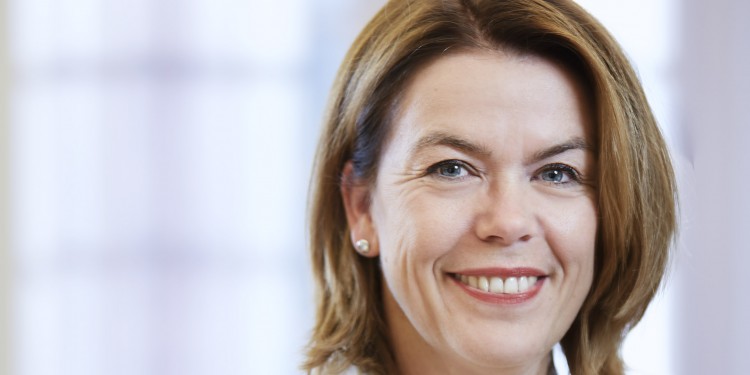
"Promoting junior researchers": Vice-Rector Prof. Maike Tietjens on the Press Office’s new special feature
No modern, successful university today can avoid having a critical discussion on how to successfully promote junior researchers. Universities need not only outstanding researchers with international visibility – knowledge managers also play a key role in promoting precisely this visibility. Here at Münster University we want to recruit the best minds and offer them the best conditions for their own further development. And, by having them here, we want to ensure that Münster University can constantly renew itself. For us in the Rectorate, the following aspects are particularly relevant:
1. What we understand by junior researchers are the groups of doctoral students, as well as those who have already gained their PhDs (post-docs). And this diversity is reflected in our understanding of the issue of promoting junior researchers. At Münster University, this understanding is based on our aim to prepare junior researchers for an academic career as well as we possibly can, while taking account of individual phases in their lives. In this, it is equally important to respect both researchers’ independence and any individual need they may have for support and assistance.
2. The promotion of junior researchers at Münster University is marked by a wide range of measures – both centralised and decentralised, both subject-related and interdisciplinary in nature – which complement one another and benefit in the process. Subsidiarity is an important guiding principle. For us, this means strengthening individual faculties’ and departments’ autonomy as much as we possibly can – but it also means calling on their responsibility for their junior researchers. This also means that, in their leadership roles, professorial supervisors have a special part to play. They are the first points of contact, they pass on subject-specific competences, and they act as advisors in matters relating to career planning. As such, they make a significant contribution to developing their students’ personality as independent researchers.
3. Promoting junior researchers is not an end in itself, nor is it a question of the University playing the good Samaritan. In order to reconcile organizational and individual interests, we as a university must create the right overall conditions which enable the independent researchers mentioned above to develop as such. A family-friendly culture, the provision of low-threshold advice relating to individual phases in life, and taking subject-specific requirements into consideration: these are some of the overall conditions necessary for bringing out the potential, as well as the intrinsic motivation, which our junior researchers have and for making efficient use of them for Münster University.
4. At the University of Münster we increase awareness of alternative career paths besides that of a professorship. The truth is that not every PhD student or post-doc will be able to get a tenured professorship. However, we have introduced our Tenure Track Model for a transparent career path which can be planned. Developing alternatives at an early stage is necessary, but only possible in a few areas, for example in university management. Universities are self-referential, educating only for themselves and the academic system. So, overall, we as a university must to a greater extent open ourselves up as regards alternative career paths: promoting junior researchers well means supporting networks in areas outside the university, also helping in the process to create such networks. At the University of Münster we offer outstanding, research-oriented education. The competences thus acquired are in demand not only in the academic world, but also in companies, in politics and in professional associations. Building bridges to these areas is something we see as one of the tasks belonging to the promotion of junior researchers at university.
In conclusion, I would say that we offer a great deal, and we provide individual support. It is against this background that decentralized measures in our Institutes, graduate schools and research partnerships are becoming a focus of attention. They are taking the characteristics of subject cultures and putting them at the forefront of the way they promote junior researchers. But we can raise our game by making more lasting use of our synergies, by pooling existing offers to make them more relevant to specific target groups, and by making it clear to our junior researchers that Münster University is committed to their academic advancement. So far, promoting them has been pursued at numerous more or less interconnected places. Bringing these places together in a dialogue and pursuing the promotion of junior researchers, both within their subject areas and in an interdisciplinary sense, will be the challenge we face in the coming years.
Prof. Maike Tietjens is Vice-Rector for Strategic Personnel Development at the University of Münster.
Source: "wissen|leben" No. 1, February / March 2019
